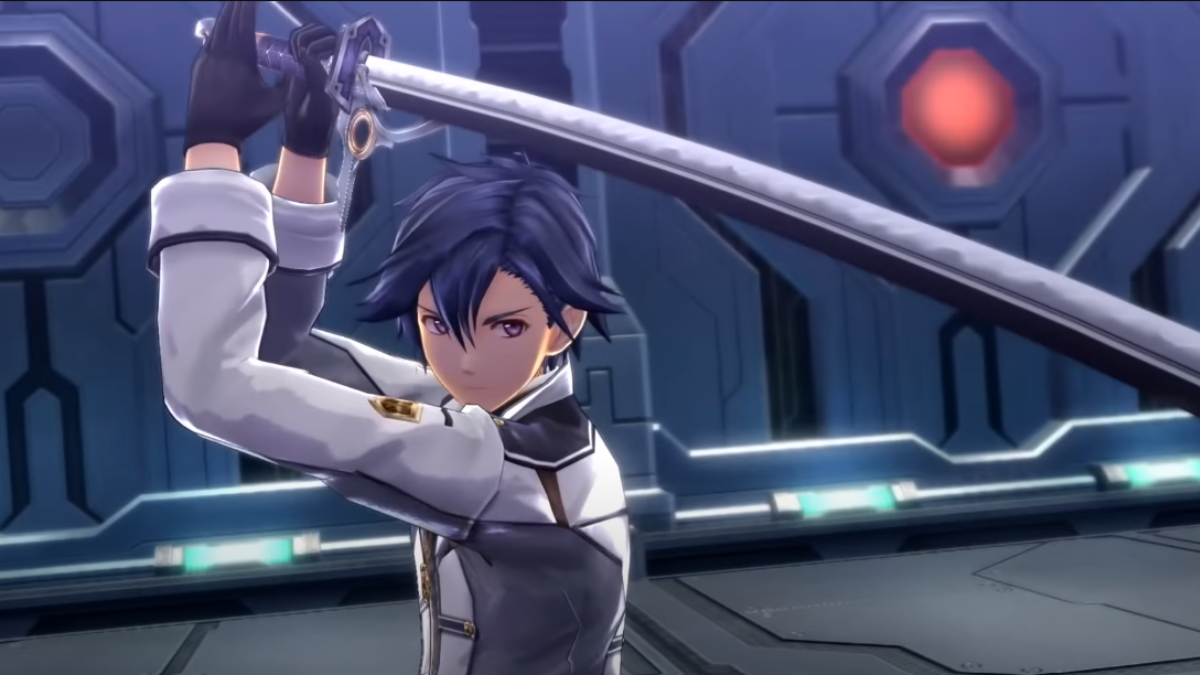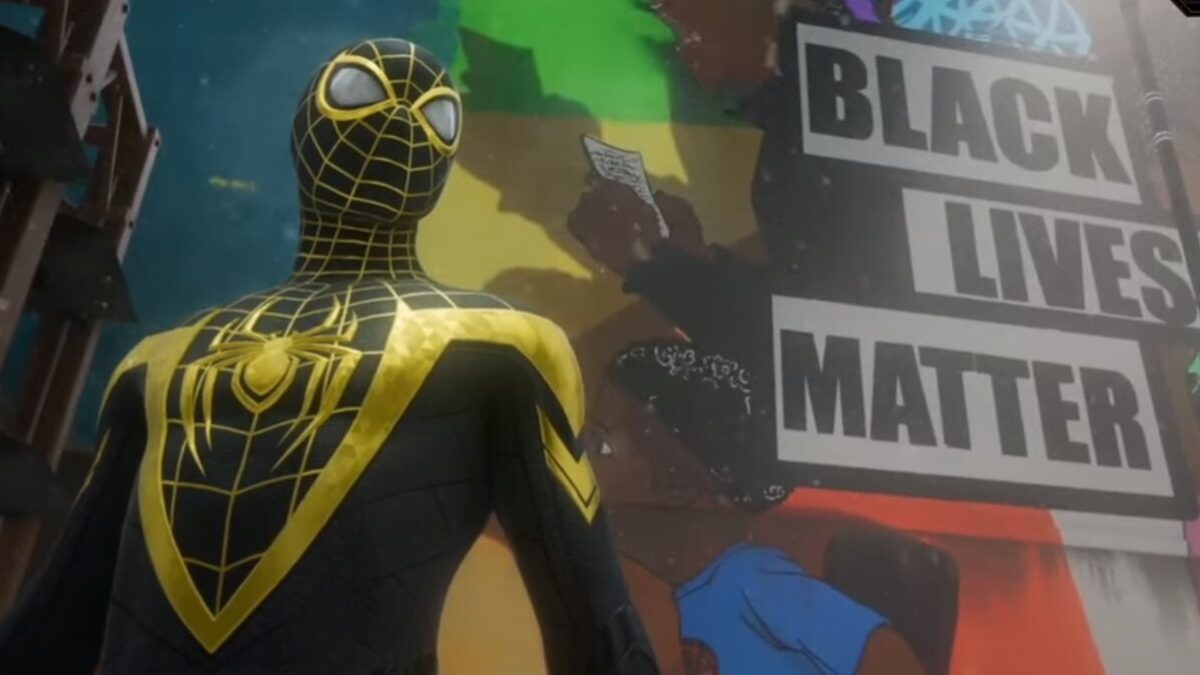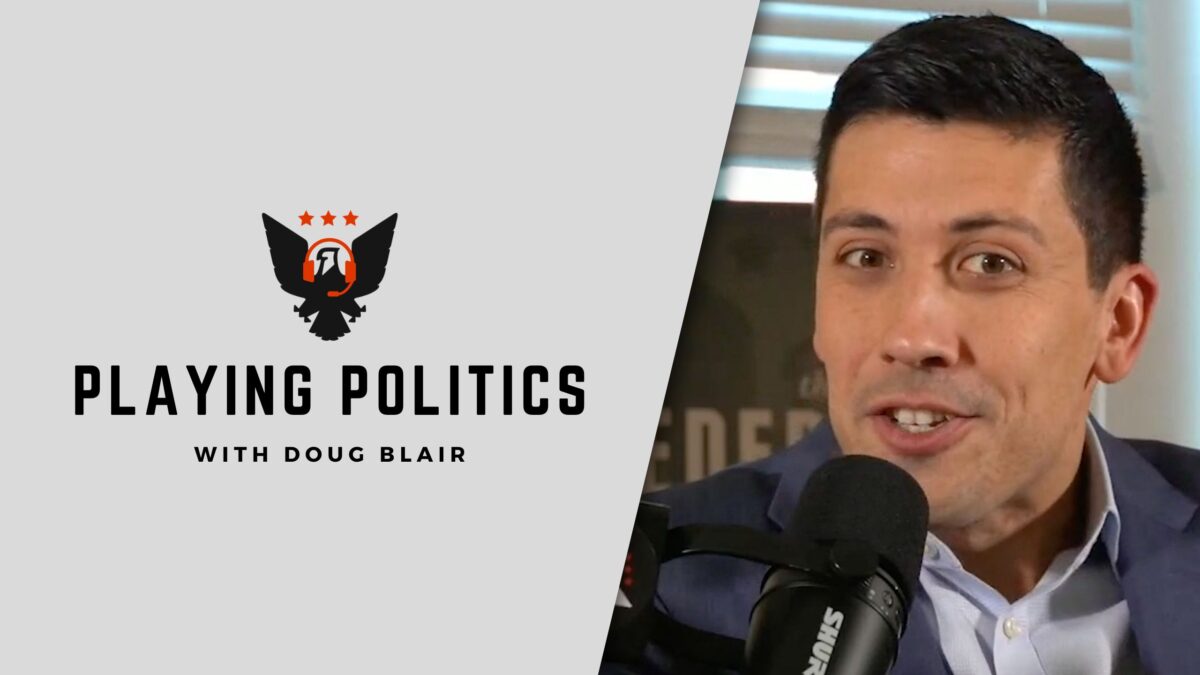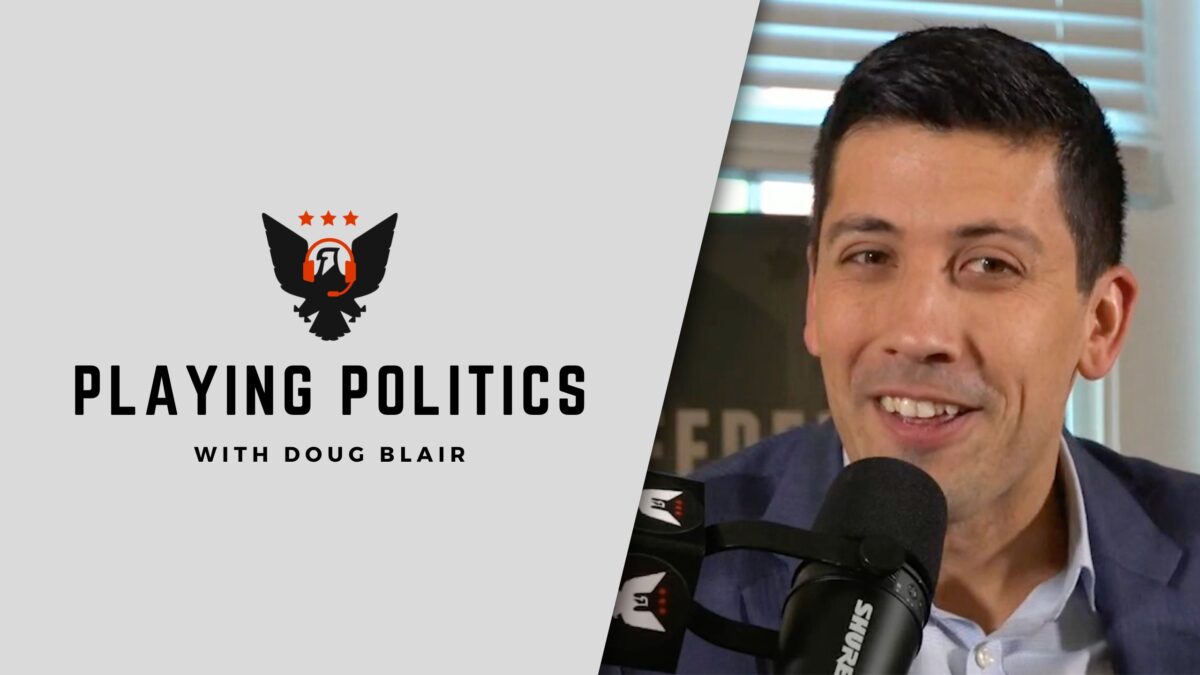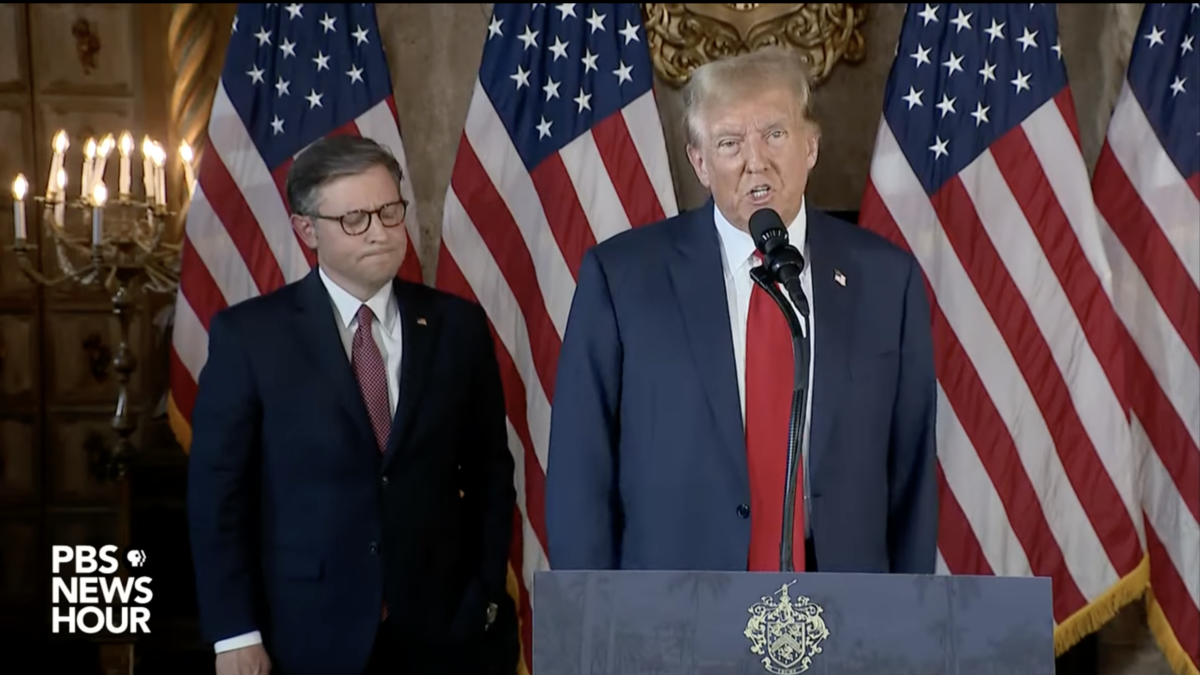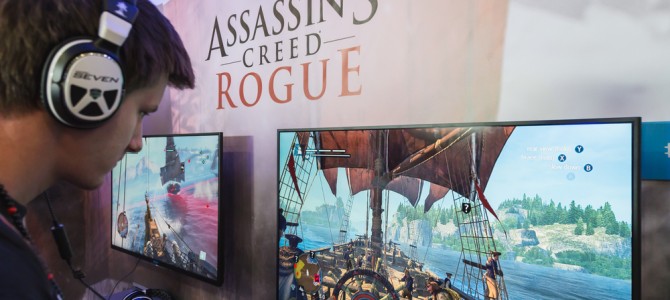
“A man chooses. A slave obeys,” said Andrew Ryan, the creator of the underwater city of Rapture and a political objectivist, moments before his death.
On a list of phrases gamers remember most, that one from “Bioshock” is certainly near the top. It’s popular with people for more than just being an awesome line that gave depth to a character. Ryan’s words resonated with people to the point that it actually led them to the conclusion, “I want to choose.” Ryan’s brief appearance in the game where he spoke those words resonated so much that he was voted eleventh in Game Informer’s reader poll of characters that defined a generation.
Around that time, and perhaps coincidentally, in 2007 there was a sharp uptick of sales of “Atlas Shrugged” by Ayn Rand, the real-life figure Ryan was based on. While many factors went into Rand’s resurgence, I like to think “Bioshock” had a hand in it. It sold around 4 million copies, after all. Either way, it was introducing people to principles they might not have previously come across from mainstream sources.
Video Games Naturally Lean Right
Fast-forward to 2012, and during a Q&A, Bill Whittle guessed video games would revive the principles those on the Right tend affirm. He observed that many video game stories tended to have a Right tilt. Whittle wasn’t far off. Between story lines and real-world events, video games have paved the way for a wider acceptance of a good number of American conservative ideals.
Video games, whether many know it or not, tend to have the ability to bring out the latent right-winger in all of us. In these virtual worlds, there is no participation trophy. You play to win. If you fail, you try again, and again, until you succeed.
Some games teach you appreciation for free-market principles by having you participate in an in-game market system, like the one seen in “World of Warcraft.” Some games, such as “City Skylines,” teach you the importance of a balanced budget. Many of the most popular games teach you that, sometimes, violence actually does solve problems, and that peace can definitely come through strength. Hell, if there’s a better mainstream example in gaming of resistance to political correctness than “Grand Theft Auto,” I haven’t found it yet.
Video games are the new story teller, and have the same ability to teach lessons and feelings as books do. With many games upholding right-wing qualities in a world dominated by leftist media, people are starting to get comfortable with ideas that blend the two.
Take ‘Assasin’s Creed,’ For Example
One recent example that stands out is the game series “Assassin’s Creed,” which puts you in the shoes of members of a secret organization called the Assassins, which opposes the Templar, a separate secret organization attempting to bring the world into a “Utopia” by eliminating individual freedoms and establishing complete control. Throughout each installment, the theme of liberty versus tyranny unfolds between the two groups. Figures the Right lauds such as Niccolo Machiavelli are members of the Assassins. It even dips into American politics during the Revolutionary War, where the Assassins find themselves allied with the Founding Fathers.
Thomas Jefferson (actually a character in an installment within the series focusing on the American War for Independence), once famously observed, “The natural progress of things is for liberty to yield, and government to gain ground.” This observation proved wholly correct, as you can see the progressive Left demonstrating this consistently today,. It can also be ascribed to the Templar Order’s modus operandi, best expressed by the Templar character Haythem Kenway: “Even when your kind appears to triumph…Still we rise again…All we need is that the world be as it is. And this is why the Templars will never be destroyed.” Each time period the series visits faces the ongoing struggle between individualism and collectivism.
It would be dishonest to say that the game makes any specific political commentary, as the game’s canon gives no loyalty to any political party. For instance, both George W. Bush (R), and Lyndon B. Johnson (D) belong to the Templar Order in the AC universe’s canon. But it would be wrong to say its liberty-minded protagonists don’t elicit smiles and nods of agreement from real-world conservatives and their libertarian cousins.
Humorously, members of France’s socialist Left labeled one installment of the game a “capitalist conspiracy” for its unkind portrayal of the French revolutionary-turned-tyrant Robespierre, and it wouldn’t be the last time people accused a game of being right-wing.
Notice the Pro-Military Offerings
Another good example would be the much-loved, much-hated, and wildly successful series “Call of Duty.” The game frequently centers around the efforts of military entities, primarily U.S. and British forces. While the game is a thrill ride that can compete with any action movie, it also humanizes and even glorifies those in the armed forces.
The game’s pro-military stance has earned more than its fair share of notice from the Right. Adam Shaw of Fox News observed that “Call of Duty: Ghosts” had “arguably the most right-wing premise in video game history.” “Call of Duty: Black Ops 2” was produced with the help of Reagan-era hero Oliver North, who not only starred in the game, but helped promote it.
Many other games follow this pro-military pattern, such as “Medal of Honor,” “Battlefield,” and the futuristic military epic “Halo.” Unlike movies, these games put you in the boots of the soldier, and not only allow you to take part in the action, but also experience a fraction of the emotions they suffer.
These games have received a good deal of ire from the Left, and have repeatedly been accused of spreading conservative propaganda. Progressive leftist and social justice sympathizer Bob Chipman (a.k.a. Movie Bob) went on a 16-minute rant over North’s part in “Black Ops 2,” accusing the games industry of moving away from a progressive groove and into a more right-wing track.
Later, he would go on to call the series a “right-wing neocon wankfest,” and would use this as an example of how this causes right-leaning—or, as he called it, “poisonous, hate-based” ideology—to enter into gaming journalism after it was announced that I and several others were contributors to the popular gaming site “The Escapist.” All this because the game looked favorably upon the men and women in our military, and didn’t succumb to the political correctness the Left expects regarding villains being any race other than white.
Gamers Want Free Thought and Free Speech
The Right doesn’t just find new breath through the games themselves, but also through events surrounding them. Whittle’s prediction that video games would usher in a new age of popular conservatism turned prophetic in a way when the gamer-led consumer revolt known as GamerGate rose, partly due to the attempted control and corruption of leftist-dominated gaming journalism sites. Aggressive pushes for social justice by hard-Left figures drove many leftist gamers into common ground with their right-wing fellows.
The enemy of their enemies became their literal friends, and soon old prejudices didn’t matter half as much in the face of their progressive foe. Long-overdue communication between the left-and right-leaning began to occur, and soon both parties began finding levels of understanding long bereft from the political stage. One left-leaning member of the movement even told me that he reconsidered everything he had thought about the Right.
This elicited indictments by hard leftists and the media of gamers being “right-wing” because some resisted leftist agendas and conservative and libertarian figures rose to the forefront. Understandably, the push away from a far-Left agenda could be logically considered a right-leaning action. Resistance to centralized control and freedom of speech are, after all, qualities conservatives and libertarians favor. Regardless, the movement consisted of people with many different political affiliations, with right wingers having a large and loud presence.
Progressives are still attempting to paint gamers and the games industry as “right-wing” today, using the same pejorative terms they have painted Republicans and conservatives with for ages. As with most progressive talking points, this can pass as true without scrutiny, as there is a kernel of truth to it. The Right’s ideas do have a presence in gaming and, as many gamers of both political sides will tell you, being “right-wing” is no longer a dirty word.
Freedom is the literal name of the game for gamers, and the Right couldn’t smile on this more. The industry and its consumers resist the Orwellian as conservatives and libertarians have been for decades, and they promote freedom in more ways than most political parties have a right to claim. In many ways, we have video games to thank for that.


